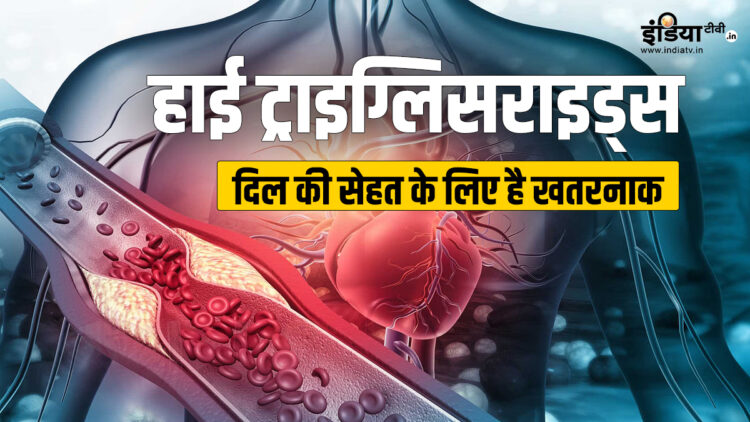High triglycerides
Increased bad cholesterol in the body is considered extremely harmful for heart health. But do you know that triglycerides like bad cholesterol are also considered fatal to the heart. Let me tell you, both triglycerides and bad cholesterol are the types of fat present in the blood that increase the risk of heart disease. While triglycerides storing energy in the body, LDL transmits cholesterol to cells. But, when their quantity in the body increases, the risk of heart attack and stroke increases due to that. In such a situation, Dr. Prateek Chaudhary, Senior Advisor and Interventional Cardiology located in the Asian Hospital, is telling what is triglycerides and when it increases, how to control it?
What is triglycerides?
Triglycerides are a type of fat found in our blood. When we eat food, the body converts excess calories into triglycerides and stores into fat cells. The body later uses these fat stores for energy. But when the level of triglycerides becomes too high, it can become dangerous for health, especially for the heart.
When does triglycerides grow?
There are many reasons for increasing triglycerides. Food containing excessive calorie, especially fat and sugars, is the main reason for this. Consuming regular junk food, sweet drinks and high amounts of alcohol can also increase triglycerides rapidly. In addition, obesity, lack of physical activities, smoking, diabetes, thyroid disorders and intake of some drugs can also affect its levels.
In addition, blood triglycerides levels may also increase in kidney disorders. Also, another major reason can be a genetic relationship. Familial hypertrichlyceridemia is a condition in which the level of triglycerides is found to be increased in many members of the same family. In such cases, the person has a tendency to grow congenital triglycerides.
How much should be the level of triglycerides?
It is also very important to know the general range of triglycerides levels. Generally, the level of triglycerides in the blood should be lower than 150 mg per deciliter. If this level is between 150 and 200, it is considered borderline, kept in very high range when it is between 200 and 500 more than 500. If a person’s triglycerides level exceeds 500, it can cause many problems and it is necessary to consult a doctor immediately.
What happens when there are high triglycerides?
The high level of triglycerides is extremely deadly for the heart. It can accelerate the process of accumulating fat in the arteries (atherosclerosis), making the arteries of the heart narrow. As a result, the risk of heart attack, stroke and other heart diseases increases significantly. High triglycerides are often associated with other risk factors such as high blood pressure and diabetes, which further spoil heart health.
How will triglycerides be reduced?
The first solution to reduce triglycerides is to change lifestyle. It is very important to have a balanced and low -fat diet.
Consumption of green vegetables, fruits, whole grains and good quality protein should be increased in food. Fried-roasted things, sugar-rich drinks and alcohol should be avoided.
Also, exercising regularly is extremely beneficial. At least 150 minutes of medium -level physical activity such as fast walking, cycling or swimming in a week.
Controlling weight is also an important step. The level of triglycerides can be reduced to a great extent only by decreasing body weight by 5 to 10 percent.
If the level of triglycerides is not normal despite the lifestyle changes, medicines can also be resorted to with the advice of a doctor. Overall, it is very important for heart health to maintain balanced levels of triglycerides. Timely examination, adopting the right catering and living an active lifestyle can help reduce this risk. If someone feels symptoms of growing triglycerides, a doctor should be consulted without delay.
Disclaimer: (Tips suggested in this article are only for common information. Start any kind of fitness program or make any kind of change in your diet or consult your doctor before making any measures related to any disease. India TV does not confirm the authenticity of any kind of claim.)
Latest health news










